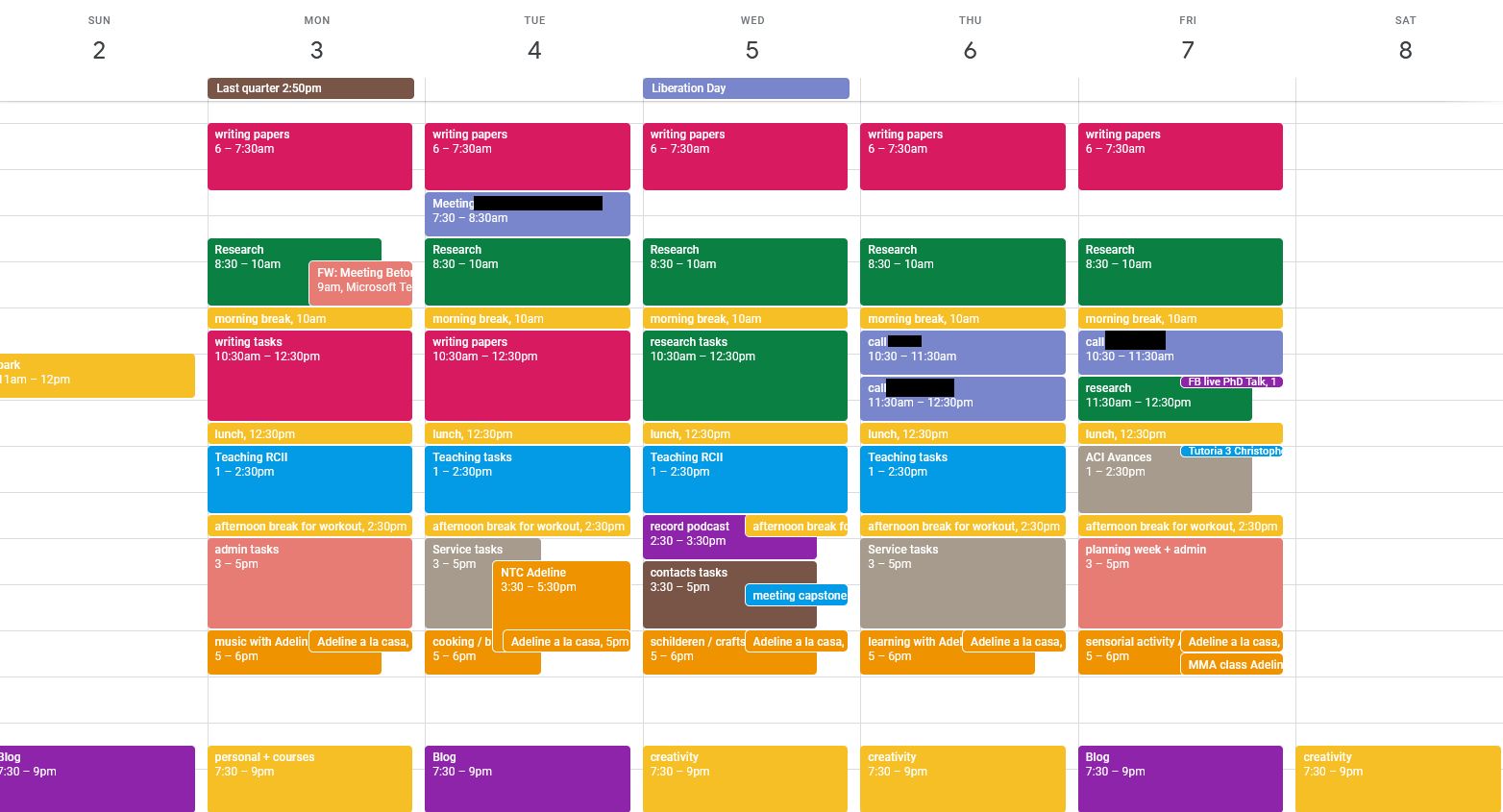
Good habits to develop as a post-doc
Continuing this series of good habits, I want to focus today on good habits that help post-docs to set up for success during their post-doc years and beyond.
The post-doc years can look differently as a function of the project you are hired on. Perhaps you will be teaching, perhaps you will be dedicated fully to research. Perhaps you will be hired on a funded project, perhaps you will have personal funding.
By all means, for a post-doc, I’m assuming you already have solid research skills, and are able to learn the skills you need in your new projects. Even if you are hired on a funded project, it is very likely that you will be involved in writing proposals – so these habits are not included in the list, as they seem to be part of the regular task package.
Here are some key good habits that will make the post-doc years and beyond a bit more streamlined:
- Set up systems to read new articles: As you think about applying for funding for yourself or for other projects in the future, you need to be thinking about topics that are of your interest, address a gap in the literature, and that are timely. Therefore, keeping a finger at the pulse of the literature is important. Figure out how you will keep up with the literature (by setting alerts, reading certain journals, reviewing,…) and make sure you set aside regularly (ideally, weekly) for reading and browsing the literature.
- Develop a publishing pipeline: As a post-doc, you typically still have material from your PhD to publish (unless you did a thesis by papers) and you will be working on one or more new projects. It is tempting to focus on just the project you are hired on, and leaving writing the papers from your PhD for when you are “done”. Spoiler alert: there’s no such thing as being “done”, so it is important to find time to write, and to develop a publishing pipeline.
- Invest time in relationships: Just as with all careers (and regardless of whether you stay in academia are not), your connections to others matter. Find time to mentor the new PhD students, make friends with post-docs from different departments and from outside your university, and develop strong social ties. Don’t become the neglected post-doc who is wilting away in the basement laboratory, but become a part of your community – on campus and outside. I’ve asserted before that my good ties to my colleagues and within university have been crucial in my career (and perhaps more important than my publication record).
- Identify what makes you unique, and work on building your profile as such: As a PhD student, your path may be rather set, although you may have space to develop your research along the accents of your interests. As a post-doc, the first step lies in the choice of project and where you apply. Hopefully, you landed a position based on your strengths or based on the skills you want to achieve, rather than based on where you could find a job. As you start to think about the next steps after your post-doc, it is important that you have your strengths defined. Now is a good time to define your future research lines as well, and to start building your profile along those lines.
- Build a network outside of your PI’s network: You want to start building your profile as You, not as Dr. X’s post-doc. To do so, the previous habit is of course important, so that people start to think about you as: Dr. Y who is working on Topic Z. Simultaneously, think about coming out of the shadow of your PI by not trailing behind them. Instead, look for other venues to attend, other groups to form a part of – that are complimentary to the network of your research group, and where you can develop your identity as a researcher.
Which habits were important to keep your work streamlined as a post-doc, and beyond?




Great list! I’m about to start a postdoc soon and I’ve been thinking a lot about the new habits and routines I want to get into with a fresh start. I’m also really looking forward to starting a new lab notebook where I hopefully will have learned to do better from previously bad habits.
Thanks! All the best with the start of your postdoc!